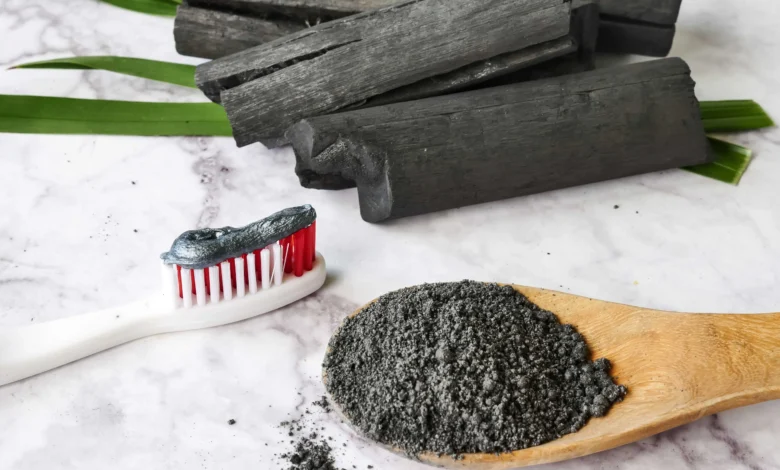The Role of Charcoal in Organic Toothpaste: Myth vs. Reality

Charcoal has been widely used in every domestic product, whether it is skincare or oral care. Charcoal has amazing cleaning properties that enhance the dull surface, no matter if it’s your skin or yellow teeth.
However, there are many myths about charcoal and organic toothpaste, which is hard to believe. This can only be understood by learning about the role of charcoal and how it’s beneficial.
In this blog post, you will read about the role of charcoal in organic toothpaste, and other myths and realities related to teeth whitening and oral hygiene.
The Charcoal Toothpaste Craze
Charcoal toothpaste is often made from activated charcoal, a type of carbon processed to have numerous tiny pores. The idea behind using charcoal in toothpaste is that it can absorb impurities and stains on the teeth, leaving them whiter and brighter. Here’s a closer look at the myths and realities:
Myth 1: Charcoal Toothpaste is Harmful for Enamel
Reality: Charcoal toothpaste has been a subject of concern regarding its abrasiveness. While it is true that activated charcoal is abrasive, many charcoal toothpaste products are formulated to be gentle on enamel. The key is to choose products that have been tested and proven to be safe for daily use. Additionally, gentle brushing and a soft-bristle toothbrush can further minimize the risk of enamel damage.
Myth 2: Charcoal Toothpaste Can Replace Conventional Toothpaste
Reality: Charcoal toothpaste is primarily used for its potential teeth-whitening benefits. It’s not designed to provide the complete oral care that conventional toothpaste offers. While it can be incorporated into a broader oral care routine, it should not replace traditional toothpaste entirely. The best practice is to use it in conjunction with a fluoride-based toothpaste to ensure comprehensive oral hygiene.
Myth 3: Charcoal Toothpaste Whitens Teeth Instantly
Reality: The whitening effects of charcoal toothpaste are not instantaneous. While some users may notice a subtle difference after the first use, noticeable results generally appear after consistent use over weeks or even months. The charcoal absorbs surface stains, which can lead to gradual teeth whitening.
Myth 4: Charcoal Toothpaste is Effective for All Stains
Reality: Charcoal toothpaste is most effective at removing surface stains caused by factors like coffee, tea, and red wine. It may not be as effective at whitening teeth with intrinsic stains caused by factors like genetics, medications, or tooth trauma. Consult a dentist for the best approach to address intrinsic stains.
Myth 5: Charcoal Toothpaste Provides All Necessary Oral Health Benefits
While charcoal toothpaste helps with overall oral health, it should be used as a supplementary product rather than a one-stop solution. Generally, toothpaste contains fluoride, which is essential for cavity prevention and overall dental health. Using both types of toothpaste in your routine ensures comprehensive care.
Wrap up
Charcoal toothpaste has taken the oral care industry by storm, with claims of teeth-whitening prowess and detoxification benefits. While there is truth in its potential to whiten teeth and remove surface stains, it is not a one-size-fits-all solution for oral health. The myths surrounding charcoal toothpaste are worth dispelling to understand its real role in oral care.





